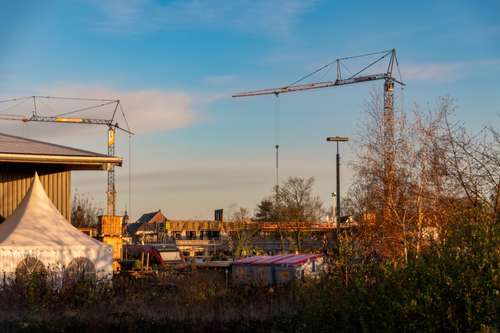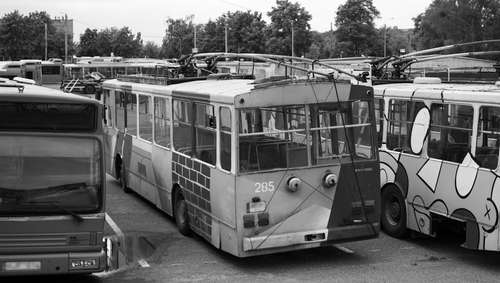Politics in Nigeria is like watching a thrilling drama unfold on a grand stage. You have your heroes, your villains, and those unpredictable plot twists that keep everyone on their toes. One of the most talked-about twists in recent times is the idea of political alliances, or as they say in Hausa, 'Ra'ayi Riga'. It’s a topic that’s got everyone buzzing from the bustling streets of Lagos to the quiet corners of Sokoto.
Have you ever imagined what would happen if political parties in Nigeria decided to join forces? It’s a fascinating thought, one that could reshape the political landscape in ways we can only begin to imagine. But before we dive into the nitty-gritty, let’s set the stage a bit. In a country as diverse and vibrant as Nigeria, with its multitude of ethnic groups and languages, political alliances are more than just strategic moves—they’re a dance of diplomacy and trust.
The History of Political Alliances in Nigeria
Political alliances in Nigeria are not a new phenomenon. They've been around since the early days of the country's independence. Back then, it was all about regional parties coming together to form a national government. Remember the First Republic? It was an era marked by alliances like the Nigerian National Alliance and the United Progressive Grand Alliance.
Fast forward to today, and the game has changed—but the players remain the same. Political parties still find themselves in a never-ending tango, trying to outmaneuver each other on the dance floor of Nigerian politics. Whether it's through mergers, coalitions, or simple collaborations, these alliances are like chess moves, each one calculated to gain an edge over the opponent.
Just take a look at the formation of the All Progressives Congress (APC) back in 2013. It was a bold move, a merger of several opposition parties that shook the foundations of the political establishment. The result? A victory in the 2015 elections that changed the course of Nigerian history. It was a classic underdog story, one that proved the power of unity in politics.
Why Political Alliances Matter
So, why do political alliances matter so much? Well, they’re like the secret sauce in the recipe for electoral success. In a country as complex as Nigeria, where regional and ethnic loyalties run deep, forming alliances can help bridge divides and create a broader base of support.
Think of it this way: in a country with over 250 ethnic groups, each with its own unique identity and interests, political parties need to be more than just regional champions. They need to be national contenders. By forming alliances, parties can tap into different demographics, appeal to a wider audience, and increase their chances of winning elections.
But it’s not just about winning elections. Political alliances can also bring about stability and foster a sense of national unity. When parties from different regions and backgrounds come together, it sends a powerful message: that despite our differences, we can work together for a common goal. It’s a message that resonates deeply in a country like Nigeria, where unity is often the key to progress.
The Challenges of Forming Alliances
Of course, forming political alliances is not without its challenges. It’s a bit like trying to assemble a puzzle with pieces that don’t quite fit together. Each party has its own agenda, its own vision for the future, and its own set of priorities. Bringing them all together requires compromise, negotiation, and a willingness to put aside differences for the greater good.
And let’s not forget about the personalities involved. Politics is a game of egos, and getting leaders to agree on anything can be like herding cats. There’s always the risk of power struggles, infighting, and disagreements over policy. It takes a skilled diplomat to navigate these waters and keep the alliance afloat.
The Impact on Nigerian Elections
So, what impact do these political alliances have on Nigerian elections? Well, they can be game-changers. Just look at the 2019 elections, where alliances played a crucial role in determining the outcome. In some cases, they helped smaller parties punch above their weight and give the big players a run for their money.
But alliances are not just about winning votes. They can also influence policy and governance. When parties come together, they bring different perspectives to the table, leading to more comprehensive and inclusive decision-making. It’s like having a team of experts, each with their own area of expertise, working together to solve a problem. The result is often better policies that reflect the needs and aspirations of a diverse population.
Looking Ahead: The Future of Political Alliances in Nigeria
As we look ahead, the future of political alliances in Nigeria is full of possibilities. With the 2023 elections just around the corner, parties are already gearing up for what promises to be an exciting contest. Will we see new alliances form? Will old ones crumble under the weight of ambition and rivalry? Only time will tell.
One thing is for sure: political alliances will continue to play a crucial role in shaping the future of Nigeria. They will be the catalysts for change, the bridges that connect different regions and communities, and the driving force behind a more united and prosperous nation. It’s a journey that will require courage, vision, and a commitment to the greater good.
In conclusion, political alliances in Nigeria are more than just strategic moves—they're a testament to the power of unity in diversity. They show us that when we come together, we can achieve great things. So, as we watch the drama unfold on the political stage, let’s keep our eyes peeled for the next big twist. Because in the world of Nigerian politics, you never know what might happen next.




